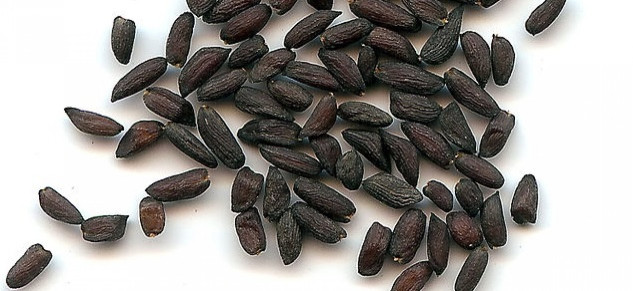6,100-Year-Old Cooking Pots Show Human Ancestors Liked Spice, ‘Earliest Known Use’ Of Garlic Mustard Seeds

A set of 6,100-year-old cooking pots may show what some prehistoric humans liked to eat.
Plant residue in some Stone Age cooking pots was recently found to contain microscopic fossils of modern-day garlic mustard seeds. If nothing else, this shows that prehistoric chefs may have preferred some extra spice in their dishes, according to a new study published in the journal PLOS One.
"What we found is that it's definitely being cooked with, and mixed with the food," Hayley Saul, a lecturer in York's department of archeology, told NBC News about the burnt food remains found on the 6,100-year-old clay pots in Denmark and Germany.
"It's the earliest known use of spice," Saul added. While the tiny black seeds have little nutritional value, researchers believe they were used as a spice to flavor marine and terrestrial animals.
While the crushed mustard seed did not survive for more than 6,000 years, archeologists found their remnants in microscopic bits called phytoliths -- microscopic pieces of silica that form in the cells of many kinds of plants. They resemble hard pieces of glass, which enable them to remain well-preserved for long periods of time.
Saul said the findings came as a surprise.
"We often think that what drove people to choose certain foods in prehistory was calories: They want to get the most food from their environment," Saul told NPR. "But in the last decade, people have started to think that eating was much more of a social thing back then. It was about sharing and showing off the prestige of the food."
Saul tried the recipe herself and said, “It went down very well." She said crushing the seeds released their flavor. Since no whole seeds were found at the site, Saul concluded that Neolithic dwellers used well-grounded seeds for their cooking rather than whole ones.
"Our evidence suggests a much greater antiquity to the spicing of foods in this region than is evident from the macrofossil record, and it challenges the view that plants were exploited by hunter-gatherers and early agriculturalists solely for energy requirements, rather than taste," Saul said in a statement.
© Copyright IBTimes 2024. All rights reserved.






















